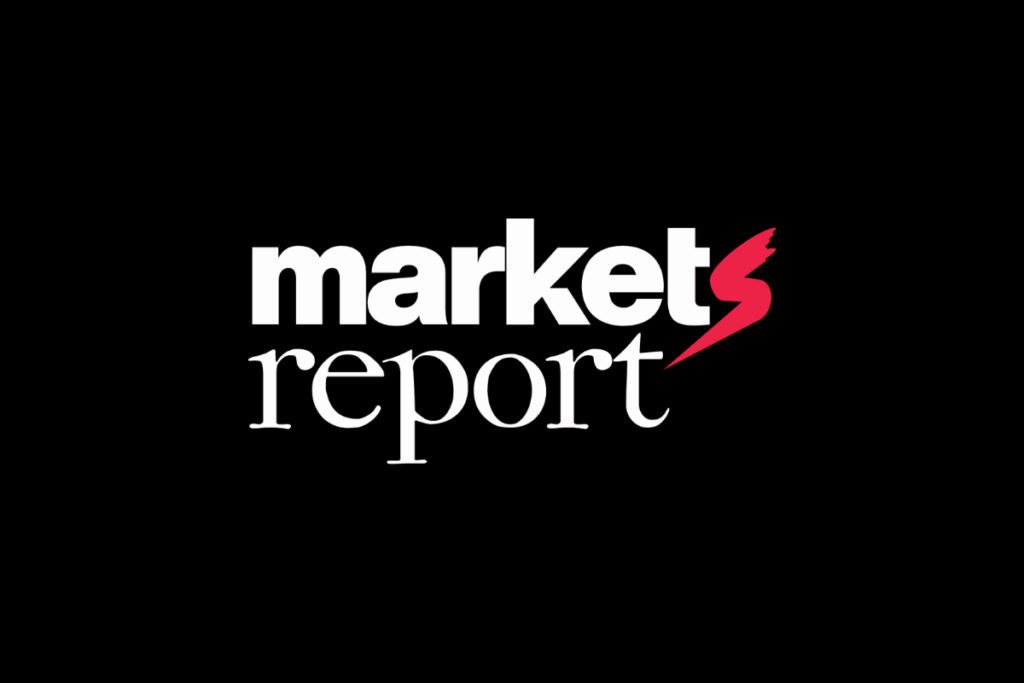Apr. 19 Markets Report: It’s Beginning to Feel a Lot Like Chaos
Commodities of all kinds are having a banner year, Millennials might finally be able to become homeowners, and crypto market losses in the last couple weeks are in the hundreds of billions.

First-quarter earnings season is officially in full swing, and with the Russia-Ukraine crisis, supply chain challenges, and high inflation still looming overhead, the forecast is looking a little cloudy with a chance of volatility.
Unrest continues at home and abroad. The flagship of Russia’s Black Sea fleet, missile cruiser Moskva, sank last week for reasons that are still unknown. Ukrainian President Volodymyr Zelenskyy reported Monday that Russia has begun pushing into eastern Ukraine with the Battle of Donbas. Three mass shootings took place over Easter weekend after the Brooklyn subway shooting that occurred last week.
A new breath test that can detect COVID-19 in a matter of minutes was approved by the FDA on Thursday, although some doctors see this test serving as a more accurate screening replacement for temperature checks rather than an official diagnostic tool.
A hike in the Fed rate seems more and more likely each day as inflation continues to climb, with St. Louis Federal Reserve Bank President James Bullard announcing he’d like to see interest rates hit 3.5% by the end of 2022. The US is likely to see two back-to-back hikes in the interest rate this May and June.
Check out the details and get updates on more of your favorite asset classes below.
Stocks & Bonds
The market continued a downward trend this week, albeit less severe than last week’s. The S&P 500 dropped 1.35%, and the Nasdaq Composite took a 1.41% dip. The Dow Jones Industrial Average plateaued, falling just 0.43%. As of Monday, however, all three started trending upward.
Improvements in the market this past week as compared to the week prior are largely chalked up to dip-buyers, and worries about the possibility that surging input costs and inflation will lead to less-than-impressive earnings this quarter still linger.
Energy led the pack thanks to gas prices hitting 13-year highs, with Coterra Energy (CTRA) jumping 5% to its highest stock price in 52 weeks.
While Elon Musk is no longer joining the board of directors at Twitter, he did make an unsolicited buyout offer of $43 billion. The board swiftly responded with a “poison pill” to limit Musk’s ability to take full ownership of the social media app, and the company’s stock is now up 2.72% as of Monday.
The financial sector also showed signs of a comeback. Bank of America beat out profit estimates in its latest earnings report, coming out at $0.80 per share rather than the anticipated $0.75 per share. Banking sector profits still fell in the first quarter, but at -12%, BoA came out ahead of competitors. There’s talk of a likely Fed rate hike, but whether or not that will help the banking sector recover remains to be seen.
Speaking of inflation and interest rate hikes, bond yields rose to their highest level in years last week in anticipation of possible Fed moves. The 10-year Treasury bond yield is particularly high, while short-term bonds saw a sharp and sudden drop, reversing a temporarily worrying inversion in the bond yield curve that occurred a couple of weeks ago.
Real Estate
The average 30-year fixed mortgage rate hit nearly 7% as of Monday—a more than 1% week-over-week increase, and the highest mortgage rates we’ve seen in over a decade. Not surprisingly, (especially given the record-high home prices we’ve seen in the past two years and the surging cost of building materials), US homebuilder sentiment is at a seven-month low according to a survey conducted last week.
As we ring in spring, these factors could dampen what is traditionally a hot season for real estate. A cool-off in the housing market could be great for prospective homebuyers who’ve had to hold off on snatching up their slice of the American Dream due to intense competition, as some real estate agents are reporting that houses are finally selling for closer to listing price rather than the 10% to 15% premiums we’ve been seeing.
Future Fed rate hikes will likely push mortgage rates even higher, exacerbating the problem with ever-climbing mortgage-payment-to-income ratios, which are now at an average of 31%. That said, most economists and real estate experts are still rejecting concerns that the housing market could be on its way to a repeat of the 2008 bubble.
Crypto
Cryptocurrency continued its downward spiral this week, a plunge that’s cost the crypto market almost $400 billion in losses since early April. Bitcoin (BTC) finally jumped back up above the $40,000 mark this Monday, while Ethereum (ETH) took a plunge below its $3,000 mark before jumping back up above it on the same day.
Overall market sentiment amongst investors and fears of a looming recession are likely causing the crypto sell-off. Other promising coins like Cardano (ADA) and Solana (SOL) also took some hits this week, but the biggest losers were popular meme coins like Dogecoin (DOGE) and Shiba Inu (SHIB).
That said, it might not be a coincidence that some of the biggest sell-offs occurred on tax day, as newer crypto traders are often surprised by their tax bills and may be in need of additional funds to pay off Uncle Sam. AMC Theatres finally launched a version of their mobile app that now accepts DOGE and SHIB as forms of payment in addition to more mainstream coins like BTC and ETH, which could be good news for crypto coins of the dog-inspired variety.
Over the weekend, hackers drained $182 million from DeFi project Beanstalk Farm, creators of Ethereum-based stablecoin Beanstalk (BEAN), in a hack that reportedly took less than 13 seconds and netted the hacker around $80 million in profit. The BEAN token, meant to be pegged at a value of $1.00, broke its peg and was trading for $0.14 on Monday, a warning sign for other stablecoins that have grown in popularity recently precisely because they’re meant to be, well, stable.
NFTs
Despite a steady downward trend in the trading volume of NFTs throughout 2022, it’s still becoming clear that they’re far from a passing fad. A new Global Non-fungible Token (NFT) Market 2022-2026 report posits that the NFT market will grow by nearly $150 billion over the next five years, achieving an estimated CAGR of roughly 35% during that period.
And the NFT market might not be cooling down so much as pivoting. While NFTs started as a way to claim ownership of digital art and memes, various players have taken the underlying technology and expanded its use case beyond the arena of digital art. Blockchain firm HashCash, for example, is teaming up with the healthcare industry to turn patient healthcare data into NFTs (on a voluntary basis) in order for patients to more easily share this information with healthcare providers and participate in studies and research. Retired US astronaut Scott Kelly even believes that NFTs could play a key role in space development, and he recently released an NFT collection inspired by his space journey to raise funds for those affected by the war in Ukraine.
The era of NFTs as cute collectibles is also far from dead. Moonbirds, an NFT collection of 10,000 different digital owls, is the latest obsession amongst NFT enthusiasts, threatening to overtake staples like Bored Ape Yacht Club and CryptoPunks. The collection, which sold out in a matter of days, has already achieved over $280 million in sales volume.
Commodities
Global inflation and the war in Ukraine continue to push commodities prices upward, with the price of corn hitting a 9-year high. July corn futures contracts are trading at over $8 as of Monday, with wheat and beans also hitting highs recently. Leading agricultural ETF The Invesco DB Agricultural ETF is up 1.90% over the last week, and rising food prices present increasing challenges for global food security.
As oil continues at record highs as well, investors wonder if it’s too late to get in on the price surge action. West Texas Intermediate (WTI) crude prices are above $100 per barrel for the first time since 2014, and OPEC forecasts that demand for oil will continue to increase. In a conversation with Yahoo! Finance, Damien Courvalin, Head of Energy Research at Goldman Sachs, expects short-term volatility but, ultimately, a continuation in the upward trend of crude oil prices.
As of Monday, the gold spot price hit a month-long high, almost grazing the $2,000 mark. If inflation continues, some economists believe commodities could come out as the best-performing asset of 2022.
Miscellaneous assets
Art
- Artnet released its Spring 2022 Intelligence Report, which found that 2021 was the best year for fine art auction sales they’ve ever recorded, and ultra-contemporary art (by artists born after 1974) is the fastest-growing segment in the fine art market.
- The Potomack Company is auctioning off some of the late Ruth Bader Ginsburg’s personal art collection, including four Picasso pieces and a Max Weber watercolor.
Startups
- As Canadian cities like Toronto and Vancouver continue to grow into competitive tech hubs, US venture capital investors have started pouring a record-breaking amount of funds into Canadian startups.
- Tennis champion Serena Williams’ venture capital fund Serena Ventures recently pumped 7 figures into digital endorsement deals marketplace OpenSponsorship.
Sneakers
- Sotheby’s announced it’ll be hosting its first-ever auction dedicated to the Nike sub-brand Nike SB—the “Nike SB | 20 Years” Retrospective Auction—in honor of the skateboarding line’s 20th anniversary.
